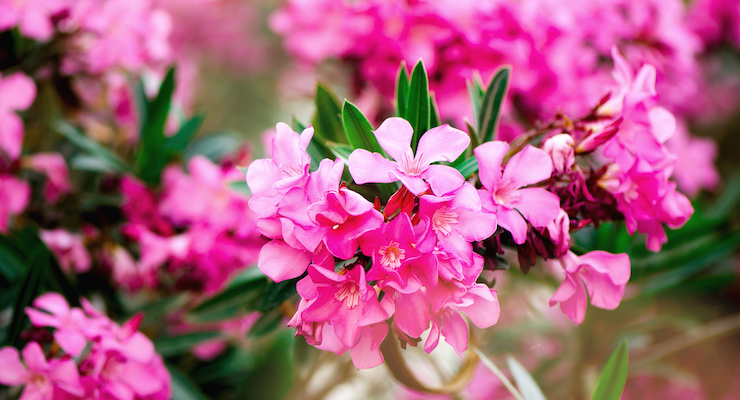Market Updates
ABC, AHPA Warn Against Home Remedies Containing Highly-Toxic Oleander
The herb contains chemicals that can cause death, and serious cardiovascular side effects.

By: Mike Montemarano
Associate Editor, Nutraceuticals World

The American Botanical Council (ABC) and the American Herbal Products Association have issued warnings about a highly toxic plant called oleander, urging that no one consumes any part of the plant, or capsules, tablets, teas, or extract preparations made from leaves or other parts of the oleander plant. The plant contains chemicals that can cause serious cardiovascular damage, and ingestion can result in death.
ABC said that the warning is a response to recent media reports, which suggest that President Trump may be eyeing Oleandrin, an experimental drug which has not been approved by the FDA. Recently, Axios reporter Jonathan Swan reported that Mike Lindell, the founder and CEO of MyPillow, told Axios the president is mulling over whether to suggest that “’The FDA should be approving it.”’ Axios reports that Lindell bought a stake in the company that develops Oleandrin, which is produced using extracts from the oleander plant. The drug has never been tested in humans who have contracted COVID-19, however, Axios reports the company behind the drug is conducting a human clinical trial currently.
Because of the widespread media coverage on mainstream news channels, ABC is concerned that consumers may be persuaded to attempt to ingest the poisonous plant.
Oleander is a large white- or pink-flowering bush or small tree that is grown as an ornamental plant in many parts of the world including the U.S. All parts of the plant contain a poisonous substance, oleandrin (the same name as the pharmaceutical investigative drug) which is formally known as cardiac glycoside.
ABC doesn’t know of any extracts or dietary supplement products sold in the U.S. that contain oleander. Oleander plant parts and its extracts are not sufficiently safe to be sold in dietary supplements, the organization said. Homeopathic drugs contain oleander in highly-diluted concentrations, to the point where there are only minute amounts of molecules from oleander compounds left in the dilution.
AHPA urged online retailers to refrain from offering any products containing oleandrin for sale. The trade group mentioned that, in 1998, a new dietary ingredient notification (NDI) was submitted to the Food and Drug Administration for oleander extract.
“FDA responded to this notification by noting, in part, ‘All parts of the oleander plant are poisonous to man and animnals … [due to] the cardiac glycosides in oleander … [including] oleandrin.” AHPA said it is “exceedingly rare for the agency to essentially reject a notification due to known safety concerns.” Only seven notifications out of more than 1,000 notifications which the agency has released expressed direct safety concerns in such a manner.
“To be clear, ABC applauds appropriate scientific research into medicinal plants and fungi as sources of new medicines,” Mark Blumenthal, ABC founder and executive director, said. “We also acknowledge the very promising medical research conducted by Phoenix Biotechnologies and their oleandrin formulations. However, ABC emphasizes the distinction between a scientifically studied, chemically-defined experimental new drug compound from a widely known poisonous plant and a simple home-made pill, tea, or extract made from the plant’s various parts. With respect to oleander, all parts of the plant are toxic, dangerous, and life-threatening when ingested. Consumers should not, ever, try to make a home-made remedy from or self-treat with oleander.”


